|
I spent last weekend in San Jose, California at the 2014 BlogHer Conference in the presence of mommy bloggers, nerdy bloggers, plus size bloggers, tech bloggers, queer bloggers, women who blog about food, dating, having autistic children, post partum depression, and living with mental illness. I ate most of my meals in the presence of two of my favorite women - Jes Baker and Chrystal Bougon of Curvy Girl Inc. I finally met Brooke Warner, the founder of Warner Coaching, someone who's changing the publishing industry and the woman who saw the future of books fat positivity and acquired Hot & Heavy: Fierce Fat Girls on Life, Love and Fashion. I met a hilarious woman named Johanna Stein (@johannastein) who wrote a book about how not to keep a kid quiet on a plane, who writes screenplays and who I'm now kinda Twitter stalking (apparently it's mutual). I learned about ebooks, meaningful font selection, taking amazing images, blogging with purpose. I learned that blogging was a vehicle for visibility, activism, keeping it real, opportunities for success, a way for women to connect and feel like they weren't alone. There were women there who had created communities and changed the conversation about size, beauty, ability and race. And yes, I met Khloe Kardashian. I was totally in awe of an entire convention hall filled with women who had contributed in some way to making the interwebz a place that I spend a lot of time on. During the conference a woman who began a blog about dealing with post partum depression asked all of us "what is your internet?"
My internet is where fat folks, nerds, critical race scholars, queers and fashionistas converge to create a community I call my own. We organize to take care of each other. We message each other when we see someone is having a shitty day. We create gatherings where we redistribute wealth like lipstick and shoes and dresses. We fight for each other when trolls and assholes attack us for being fat or brown or feminist or gender non-conforming. We help boost each other's signals when we have projects we care about. We admire each other's perfect outfits or delicious meals. We share our chub rub solutions, our aluminum free deodorant tips, our guides to making clothes fit better. We share vulnerable things and send ((((hugs)))) when things get harsh. That is my internet and I saw a lot of these women doing the same kind of work in their way. I remembered how much I love being completely surrounded by feminine presence. I remembered how much room other women have made for me. I remembered being a baby feminist who had a lot of self hatred and fear of being a woman and projecting that onto others. I remembered that it was women who taught me to let go of that hatred and fear. I was totally in awe this weekend and I left feeling utterly convinced that we own the internet. xo, Virgie #LoseHateNotWeight I was recently interviewed for an
article on public food shaming as a form of street harassment on Huffington Post. The article's author, Emma, told me that a TOTAL STRANGER commented to her on the street that she shouldn't be eating a frozen yogurt because it was going to make her fat. She was obviously hurt and shocked and couldn't even finish her froyo. I'm no stranger to strangers feeling they have the right to comment on my body. With the full scale war being waged by the public health sector against fat people the budget for "anti-obesity" measures has increased considerably over the last 5 years. This highly visible war has essentially deputized any and everyone into an honorary member of the fat police. The thing is that fat people have long been at the center of scrutiny and public aggression. Public health messaging adds to pre-existing stigma. As I spoke with Emma I was pushed to think about my public consumption habits. As I read the article I saw that she quoted me as having said that I typically avoid eating in public because I am sensitized to people's hostility toward my fat brown femme body. I'm usually wearing neon or a crop top or a large lobster on my neck so I'm just generally hard to miss. As I read my words I thought: "Well, that's shitty." After all that I've overcome I still police myself around my consumption. And I realized two things: 1. It's not my fault that some people feel the need to share their issues with my body or food I'm putting into my body with me. THEY are wrong. THEY should be embarrassed of their bigotry. THEY should control their unruly behavior. The fact that I am checking my behavior so that I can feel safe outside of my house is normal survival behavior. So yay me for having a brain that wants to protect me. The truth is that I don't always have the emotional reserves to deal with people's idiocy and I don't have to represent for all women or all fatties all the time. But.. 2. Nobody should stop me from doing what I want to do with my body. Echoing the words of my friend, Isabel Foxen Duke: your body isn't a democracy. It's a dictatorship with you as its autocrat. Though I won't be having every meal from here on out on my front porch, talking about food policing as a form of street harassment reminds me that I own the streets and the treats. And I have a right to eat pizza, froyo, donuts, or a whole frakkin cookie bouquet where I want and when I want. xo, Virgie #LoseHateNotWeight A few days ago my boyfriend said something that healed the little fat girl inside me:
"You're the whole package." It's funny/sad/to-be-expected-I-guess that I keep finding little creepy ass fat shame skeletons in my closet and wounds I thought had long been healed. When he said it I felt tingly and flattered, but I also felt a little bit surprised. And that surprised feeling kinda surprised me. I was taught that my fat body was what prevented me from being whole and definitely prevented me from being anyone's idea of a whole package. I was taught that no one would love me and if they were with me it was because they couldn't do any better. These beliefs have made it difficult to feel safe in romantic relationships and get close to people I date and love. That's how fatphobia and other systems of discrimination and oppression work: they isolate us from love and an understanding of our intrinsic value, worth and beauty. This week I dedicated a bunch of time to finishing edits for an article I wrote for the UC Berkeley Ethnic Studies Journal. At first I didn't want to talk about the role that men played in my story of healing. Even though I wrote really (REALLY) openly about it in Hot & Heavy: Fierce Fat Girls on Life, Love and Fashion this time I was writing for an academic audience and I was afraid of how it would be received by other feminist scholars. But my editors pushed me to talk about the ways I came to heal my relationship to my body. And leaving my boos out of that story would have been a dishonest omission. I realized in writing about that journey, that it was my friends and community who helped me survive and who brought me back into my body. Yes, my partners and lovers have played a part in my recovery from the debilitating fatphobia I had internalized. And yes those people have historically been dudes. But the bigger story was that they weren't just boyfriends. They became a part of my community. Just like the friends I wasn't sleeping with, they helped me see the world in a different way and they helped me see my place within that world differently. They saw me, and our shared sexual connection did not diminish their contribution to my healing. And that is something I am, honestly, still processing. For a long time I have placed my boyfriends outside of my community, both actually and psychologically. As a feminist with my past, men have long been a source of suspicion, even (and maybe especially) the men I let into my life intimately. My community of fat and fat positive friends has been the most pivotal part of becoming the person/femme/activist-badass I am today. My boos aren't outside of that community. So when my boyfriend told me I was the whole package, he helped me to see something about myself that I apparently couldn't see for myself. And I love him for that. So today I'd like to talk about how I'm the Whole Motherfucking Package (WMFP)! I'd like to define what that means and in such tell you why you're the WMFP too. The WMFP is someone who has a complicated and at times difficult history and who has the capacity to heal from that past. The WMFP is someone who sees that their CURRENT body as it exists RIGHT NOW is central to their WMFP-ness. The WMFP is someone who knows who they are and fights to be that person. The WMFP is someone who knows how to take lemons and turn them into fucken delicious alcoholic beverages or has the capacity to be that person. The WMFP is someone who has room in their heart to hold other people. The WMFP knows that traditional, oppressive standards of beauty based in sizeism, racism, ableism and ageism are fucken TI-RED. The WMFP is someone who is working to define their own beauty. The WMFP is not strong all the time and doesn't feel like a badass all the time. The WMFP can be vulnerable and tender too. What does being The Whole Motherfucken Package mean to you? xo, Virgie #LoseHateNotWeight Have you heard of the FAT ACTIVISM CONFERENCE? I'm key noting it! It's a virtual conference and I hope you can make it! Virgie will be joining a power mob of some of the finest names in fat activism this August 22-23 as part of the Fat Activism Conference. Register now and get access to web-based workshops and Virgie's key note, entitled #LoseHateNotWeight, Here's the description:
In 2008 I made a decision to stop hating my body when I realized that I might live my whole life wishing I had eaten that cake, gone on that date or worn that skin tight pencil skirt and crop top. When people say they want to lose weight they often mean "I want to be respected. I want to be loved. I want to be seen. I want liberation from fear and self-loathing." Weight loss culture will NEVER give us those things because it is founded on fear/hate based systems like sexism, racism, classism and ableism. Enter #LoseHateNotWeight, my philosophy on de-centering self-hate and re-centering self-love. Self hate is an ideology that we were taught so we would stay in line. Self love is a practice based in the ideas that health is holistic, self-love is infinite, and your body is yours. In this keynote you will learn exactly why weight-based notions of health and worth aren't fun, sexy or sustainable and why #LoseHateNotWeight is the hottest thing since Nutella! You SO don't wanna miss this conference! There are two ABSURDLY amazing options for registration: a suggested $39 for unlimited access and a pay what you can option. When you register you support the work of creating space for this discussion and the activists who work hard to put an end to body shame and fatphobia. Do it, ghurl! I saw TaMeicka Clear speak on a plenary at the last NOLOSE Conference. She spoke about her life and her work with an honesty and groundedness that dazzled me. About a year later Meicka came up again when a friend of mine became her client. When she told me the suggestions and insights she was getting from Meicka I was super excited! So I wanted to introduce you to her. Virgie: What is body positive coaching? Meicka: Body positive coaching is kind of like a mix of spiritual and life coaching with emphasis on your relationship to your body. It involves getting honest and ok with your current relationship to your body and improving upon that in ways that feel good, loving, empowering, and liberating. Love of self is similar to love of anyone else. It is very important to have acceptance, communication, trust, and honesty at the foundation. The rest is tailored to the relationship based on personal interest, needs and desires. The same premise is used with body love and body positive coaching. Body positive coaching takes embodiment practices to another level and allows for some shifting beliefs and habits that no longer serve a loving relationship with the body. This kind of work allows you to stand in your power, for deep, sincere self acceptance and love are powerful beyond measure. So if you are someone that is looking to love the body you're in, come into balance with your body, and connect to your body in ways that you have never been able to, body positive coaching is for you. It's a tailor made to the client with options. I also offer group sessions to center an experience and build around freedom and connection. One example of a group session would be centered space for plus size/abundant bodied black women. Virgie: What makes you different from other coaches? Meicka: To motivate, inspire, support, and encourage comes natural to most coaches. For me in addition to that, I use my background and self work to do a lot of mirroring for my clients. I am very open about the many ways that my past and family history have affected my life and I use that as a point of understanding and solidarity and examples of how to do the work. I'm very social justice minded so for me that means I keep a pulse on social issues and needs that affect people that I might identify with, as well as study and stay abreast of communities and needs that are outside of my own identity or immediate radar. I work real hard to check my privilege around issues that may affect my clients and potential clients as I want to always ensure that I am providing access to as many QTPOC people as I possibly can. I also make no apologies for centering blackness and do my best to make sure that black people and specifically black women, youth, queer and trans* people, and all the ways that those identities might intersect, can feel that their experience will not have to be explained to the point of having to explain who they are. I see you immediately so we can get to the root of your goals and move shit that you want moved without having to explain a lot of who you are to me before moving forward.
Virgie: Why a social issues focus in your coaching style? Meicka: Because social issues are not just issues to be discussed and theorized about. They are everyday life and not separate from the life of those affected by social inequality, systemic oppression, and inaccessibility. So when it comes to working on spirituality, self love, a work related goal, family and interpersonal relationship goals, and many other things that clients are interested in, I believe I have to take into account all the things inside as well as outside of the client in order to make suggestions, give feedback, and support their whole experience. It's important to me that when I give a homework assignment, that that assignment does not trigger some issues and the client feel shamed by not having money or access or an understanding of what I’m talking about. That we are clear about how our working together is not about where they should be or any judgment or inconsideration about where they are. But that they are truly being met where they are, respected, and loved right where they are and supported on their journey. To take a step requires understanding and respecting the ground the person is stepping on. I do my best to keep that central to the process. Virgie: How did you come to coaching? What was your path? Meicka: I went to college with the intention on being a therapist. I did a lot of other work and jobs before discovering mental health care and many of those jobs involved me dealing with the public. I waited tables, did telemarketing, worked retail, and then discovered mental health care work as a profession. In all those jobs I was really good with people. I could understand them and meet them where they were. People would tell me the most intimate things about themselves and I was able to hear them with no judgment and then offer advice if they wanted it. As I grew in the mental health field, I began to get creative with ways to help the youth I was working with. I started doing the work with a "right next to you" kind of approach and it went over better than some of the other techniques I had tried. When I started facilitating the group meetings I stumbled upon another way to do what I had always known I was good at - teaching. And not just teaching for the sake of providing information. But teaching for the sake of helping others gain clarity, challenge them to think differently, and come up with their own advice and solutions. I was listening to Coach Kerri Smith-Osei out of LA one evening and she was telling her life story. It was almost identical to mine, specifically her description on how she felt about the work of a coach was extremely inspiring and felt closer to the kind of work I saw myself doing. It's like she had spoke to a different option than therapy. While I believe in therapy and appreciate what it has done for me and so many others, up until meeting Coach Kerri, I thought being a therapist was my only career option. After some soul searching I reached out to her. It was the fall semester of 2011. I was entering my last year of college after 7 years. I was finally approaching graduation and I reached out to her and pretty much spilled my guts and gushed about how kindred I felt to her and how I was thinking of shifting gears from therapy to coaching as a profession. We started training that September and after 6 months of intense training from Coach Kerri, I launched my coaching practice in 2012.
Virgie: What can people gain from hiring a spiritual or body positive coach? Meicka: One can gain perspective on their inner blocks and access to their inner wisdom. The sense of self is often distorted by the way we see ourselves. Beliefs about the body/self and beliefs about the divine affect how many people move in the world, take up space, claim their power, go after their dreams, admit when a situation is not good for them, rearrange and end relationships that no longer serve them, and so many other things that affect our lives daily. As you begin to uncover blocks and shift your perspective, a spiritual coach or body positive coach will be there, supporting your adjustment to living without that thing that's hindering you or assist you with understanding parts of yourself that you might have been unable to really address on your own. You can gain access to parts of yourself that feel just out of reach. Both of these areas often over lap and or ebb and flow into one another. Body positive coaching can’t help but affect most people spiritually, and spiritual coaching often affects how one begins to exist and connect to their body as well as so many other areas of life. Gaining freedom and access to other areas of life are almost guaranteed with either of these kinds of coaching. Trusting yourself, building relationships with people that are meaningful and truest to your nature, and taking on work that you're excited about and drawn to often improve with these two kinds of coaching. Virgie: If someone is considering getting a life coach what questions should they ask themselves? Meicka: There are many questions that people can ask themselves when they are deciding on hiring support for their goals and thinking about investing in themselves. One of them could be "what does my therapist think about me getting a coach?" The lines and boundaries of the work you'll be doing with a coach and the work you'll be doing with a therapist need to be clear. A nod from your therapist might be really helpful. Another really important one is, "what do I want to work on in my life that I'd like to see be very different?” This kind of question helps you think a little past fixing "it" and thinking more about the steps you'll be taking to shift things for yourself with the help of a coach. Another really important question to follow up with is "Am I in a hurry?” This question will help you decide if you are willing to be patient with the process. Everyone's process is different. If there is something that is really important that you want to work on now, then that is excellent! However, if you are in a rush, you might not be able to be present to what for many is inevitable, a change in plan. And last but certainly not least, "How ready am I to commit to myself and my dreams?" Often, clients believe that the coach will make their dreams come true. It's important to be clear that the kind of service provided through coaching is more about leading you to the door so that you can unlock it and walk through it. As your coach, I am your biggest cheerleader, accountability partner, and a really honest and attentive mirror. It's like basketball-I don't play the game for you. But we are on the same team to get out of life what you REALLY want! TaMeicka L, Clear, who prefers to be called Meicka, is a big bodied Black, dyke from Texas who resides in Oakland. She is a spiritual artist that is passionate about her communities and centers work for them in all that she does. Meicka is the teacher/facilitator, spiritual practitioner, emotional intellectual, and sassy -truth-teller, of Clear Coaching and Consulting (www.clear-understandings.com). She writes, dances, and does healing work in those ways and various other ways in order to liberate herself and others! Meicka's loves are vibrant high top tennis shoes, ginormous earrings, community/family, and her sweet sweet partner, Merika. |
Virgie Tovar
Virgie Tovar, MA is one of the nation's leading experts and lecturers on fat discrimination and body image. She is the founder of Babecamp (a 4 week online course focused on helping people break up with diet culture) and the editor of Hot & Heavy: Fierce Fat Girls on Life, Love and Fashion (Seal Press, 2012). She writes about the intersections of size, identity, sexuality and politics. See more updates on Facebook. Archives
April 2021
Categories
All
|
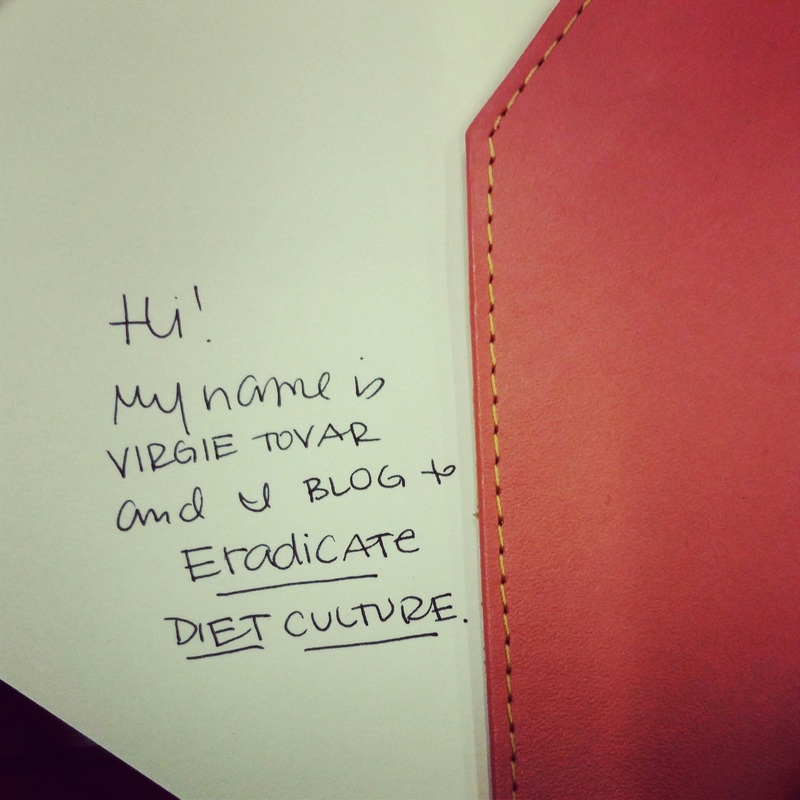
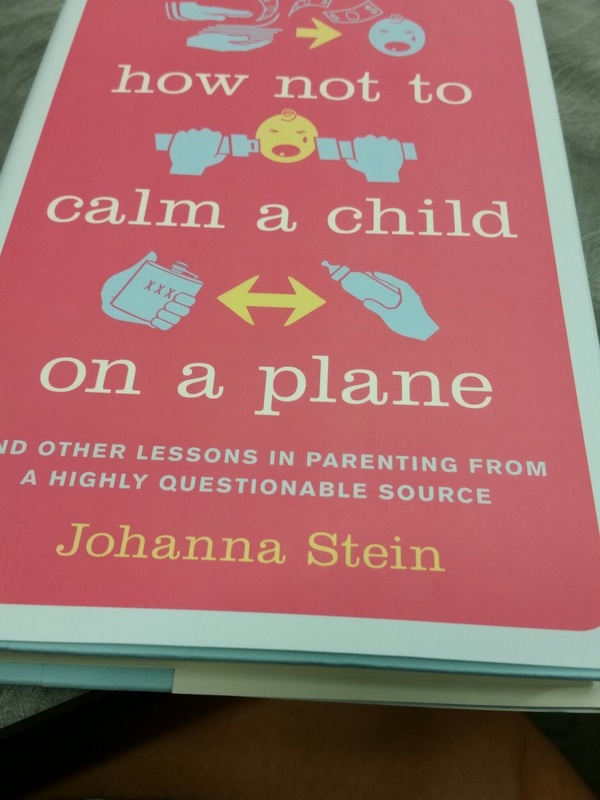
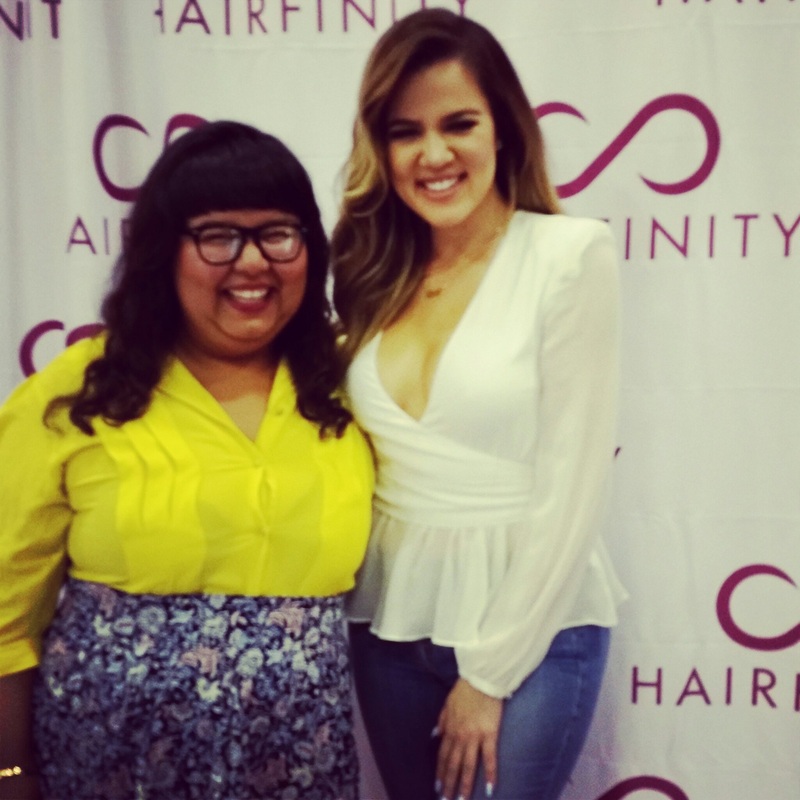
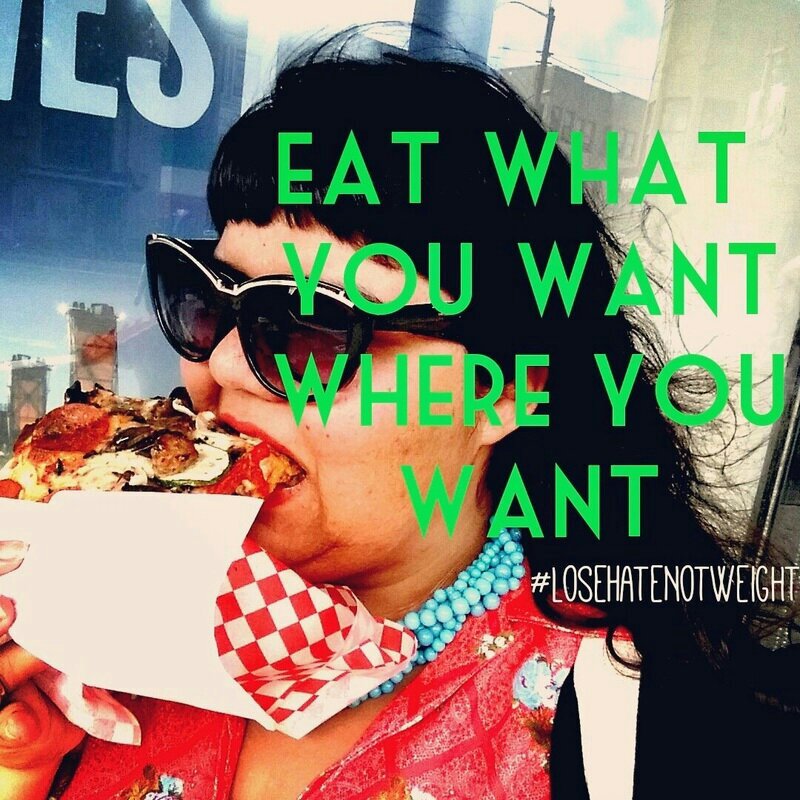
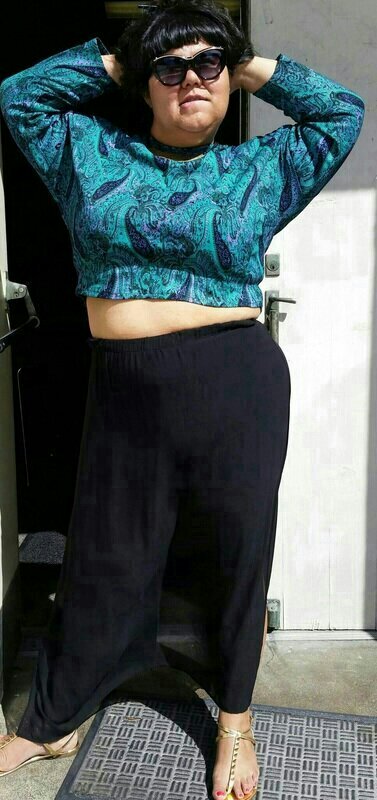
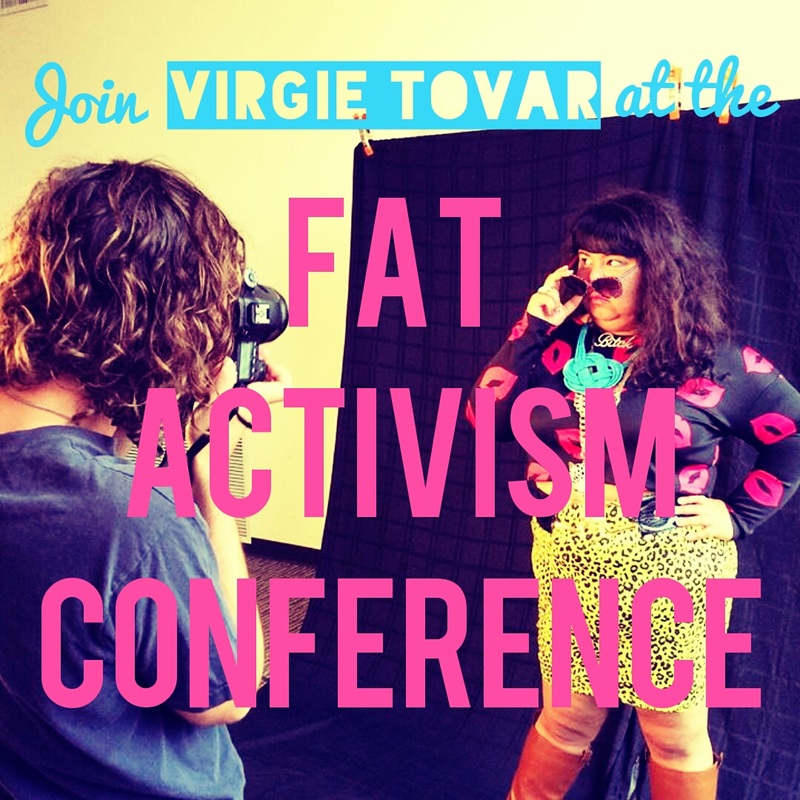

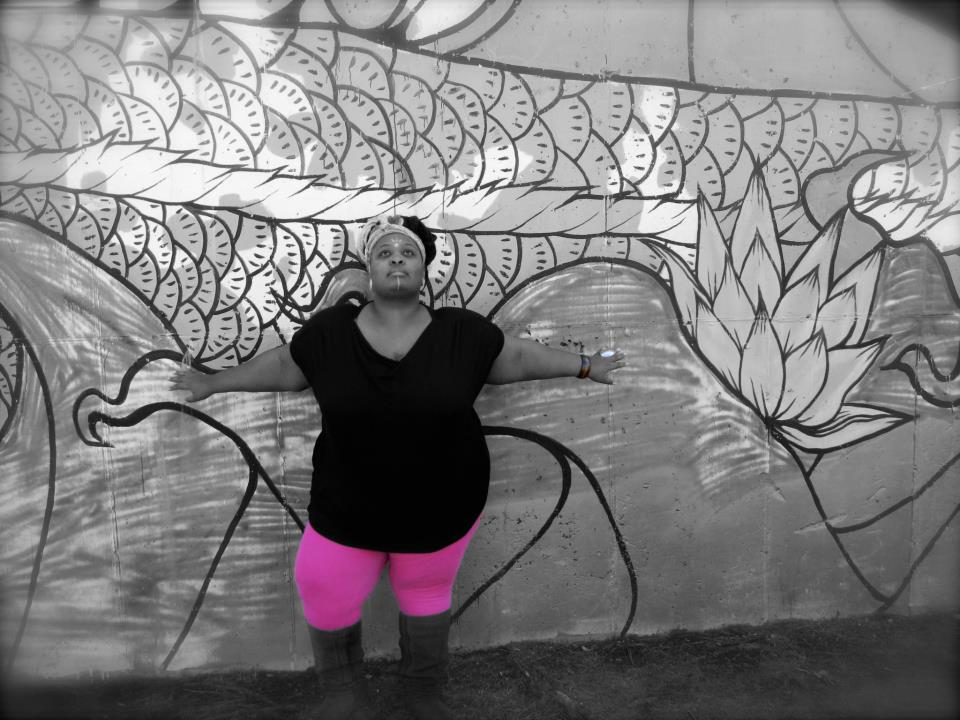
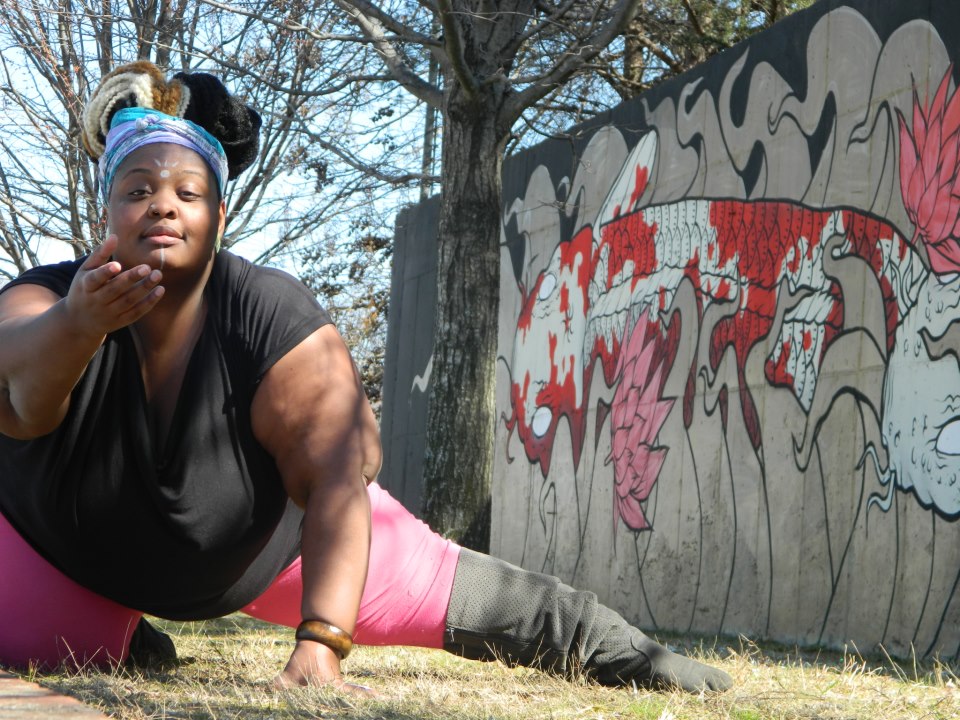


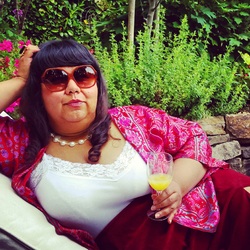
 RSS Feed
RSS Feed